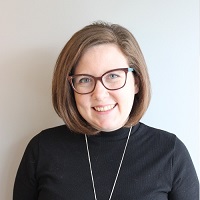
Many people reach a point in their lives when their financial priorities seem to be pulling them in different directions. It can be hard to know what to put first, especially in uncertain times. How do you balance things like building an emergency fund, contributing to an RESP, saving for retirement, and caring for family members?
Senior Wealth Advisor Teresa Valenti shares her observations and advice, gained from helping people balance their priorities throughout the pandemic.
The most common question: What should I prioritize first?
I work with a lot of Members in their 30s and 40s who have competing financial priorities. Some have just bought a home, others have kids, and everyone is concerned about saving for retirement. For many people, the expenses feel overwhelming. There's a lot of uncertainty around what they should consider the most critical priority, and where to direct their money right now.
It’s important to understand where your money is going
Discovery is always the first step I take with Members. I encourage them to create a monthly budget, so that we can sit down together and examine cash flow and expenses (essential and non-essential). This makes it easier to set short, medium, and long-term goals.
For example, I work with two Members who are married and have kids under the age of 10. They recently purchased a new home with a $500,000 high-ratio mortgage. Both of them have good jobs, but they felt like their monthly income seemed to be going out faster than they could save. We examined their expenses and their debt to figure out where the money was going and where they could cut back. Now, we have a foundation to start making some decisions.
A lot of Members have extra cash around as a result of the pandemic
This year especially, many Members have come to me with excess cash, wondering which of their financial responsibilities to prioritize first. Most of these people are working from home and saving money because they’re not commuting, going out to dinner, or traveling. Many of them are thinking about investing their extra funds and we have a lot of conversations about risk, which is different for some people these days. For example, those who have more of a cushion right now are willing to take on low to medium risk to get better returns.
Your priorities help to inform short, medium and long-term goals
Everyone’s situation is different, and often informed by where they are in life. For example, contributing to an RESP (Registered Education Savings Plan) is typically considered a medium-term goal for people with young kids. But if kids are closer to university age, it could be a short-term goal. The married couple I mentioned before had one critical short-term goal. They didn’t have an emergency fund to cover unforeseen expenses, which is especially important when you own a home. I typically recommend setting aside a minimum of three months of income. They also didn’t have a TFSA (Tax Free Savings Account), so we had an opportunity to use tax-free savings and put aside some money in case of illness or job loss. One of their medium-term goals is prioritizing their RESP to maximize the grants and growth over time.
Regardless of your expenses, always prioritize savings
Your priorities will change in your 30s, 40s and 50s. People usually experience their strongest earning potential in their 40s and 50s. But even then, it’s important to keep revisiting your budgets and financial plan. When I check in with Members, I often highlight things they may not be thinking about. For example, people often don’t feel like they have enough extra cash to put into their savings when expenses are high, but I always advise Members to keep up a savings habit. Even setting aside $25 a month makes a difference, and it helps you maintain good savings habits.
Even if retirement feels far away, saving early is the best strategy
You can’t start early enough to when it comes to retirement planning. Do a little bit every month when you’re starting out - and stick with it. Many people ignore their savings when expenses pile up. Investing early will give you dividends that compound over time and accelerate your money’s growth. I like to do projections with my Members, so they can see what their retirement portfolios could potentially look like after compounding.
The married couple I mentioned earlier had started saving for retirement, mostly through employer RRSP contributions. They didn’t invest outside of that, even though they had contribution room. We set up something separately, so they could have other investments outside of their pension plans.
The best first step is exactly what you are doing right now
Starting to plan financially and save for retirement – at any point – is an important first step no matter when you take it. Working through your budget, cash flow, spending, debt, and goals with an advisor can help you understand your priorities no matter where you are in life, or what happen next.
Interested in talking to an expert about your priorities?
Working through your budget, cash flow, spending, debt, and goals with an advisor can help you understand your priorities no matter where you are in life, or what happens next.
Connect with a Financial Planner
